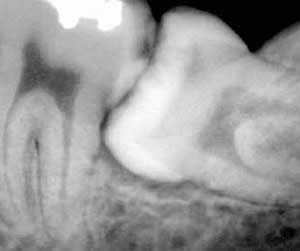
by Dr. Adkins | Aug 3, 2015
Digital radiography is the latest form of x-ray imaging, which involves the use of digital x-ray sensors instead of traditional photographic film. Digital radiography helps dental professionals make the most accurate and efficient diagnosis, and quickly develop treatment plans. A small sensor is connected directly to a computer instead of a film packet. When taking x-rays, the sensor is moved from tooth to tooth. The x-rays are available immediately on the computer monitor, with no development step in between. Since the digital x-ray exposure is shorter than conventional x-rays, the amount of x-ray radiation is reduced by up to 90 percent.
Some advantages of digital x-rays:
- Faster and more efficient.
- View images instantly.
- Less radiation exposure.
- Images can be enhanced to improve viewing.
- Images can be stored electronically.
- Avoid the use of chemicals used in the traditional developing process.
by Dr. Adkins | Aug 3, 2015
Dental exams are an important step in early detection and treatment of gum disease and tooth decay. For a first time visit, the dentist will perform a comprehensive dental examination that is very thorough and can include:
A review of the patient’s medical history, especially drug and latex allergies
A complete series of x-rays
Oral cancer screening
TMJ(temporomandibular joint) evaluation
Orthodontic screening to check the positioning of teeth and jaw bite
Complete gum examination and pocket measurements(periodontal examination)
Complete examination of all teeth, crowns and fillings
Evaluation of wisdom teeth
Smile photographs and molds or impressions of your teeth, if necessary
During a regular checkup, the dentist will conduct a less extensive exam that will include many of the steps performed during an extensive exam, such as:
- Review of any changes in the patient’s medical history since last visit.
- Examination of tooth decay and damage using special instruments.
- X-ray of any teeth that show signs of decay or wear.
- Evaluation of gums for signs of periodontal disease.
- Exam of existing restorations.
- Screenings for oral cancer.
Your dentist or dental hygienist will also likely provide you with a quick reminder on proper home care and brushing techniques.



 770-957-5214
770-957-5214  E-Mail Us
E-Mail Us 
